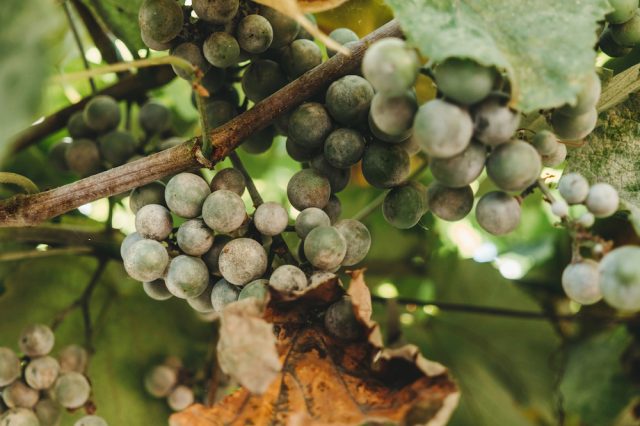This website uses cookies so that we can provide you with the best user experience possible. Cookie information is stored in your browser and performs functions such as recognising you when you return to our website and helping our team to understand which sections of the website you find most interesting and useful.
French vineyard battle against mildew returns
In what is rapidly becoming a recurring theme for French viticulture, downy mildew has returned again to vineyards this year.

As rain has continued through the spring and into the summer, having already heavier than expected across the winter, fungal disease has spread across various wine regions, including Bordeaux.
The spring of 2024 has been the wettest since 2008 and one of the wettest on record, and as a result only a few places, such as regions near to the Mediterranean and the Spanish border with the Pyrenees have been relatively spared.
Production estimates
Although the impact on the harvest remains uncertain, this week the country’s agriculture ministry will produce initial production estimates for the 2024 vintage on 9 August, indicating what and if the size of the issue will be.
But already some producers and regions have spoken out about challenges, especially in Bordeaux. Last year, the spring’s wet and warm weather caused an “early and very virulent” outbreak of mildew in the region, with Alexandre Davy of the French Institute of Vine and Wine (IFV) telling a CIVB webinar that there was mildew “almost everywhere” in the Libourne area on a “frequent or even very frequent basis”.
In addition, more mildew outbreaks just before harvest had a devastating impact. Nicolas Morain from MSA Gironde, the local department of France’s agricultural social mutual organisation, even set up a help line for “traumatised” Bordeaux grape-growers who had “lost everything”.
He said there were calls from people “who are really in distress” and one of the grape-grower’s wives had called him in tears. Some of the operators on the line are social workers, it said, and those requiring professional help are directed to psychologists. “Some have lost everything already.” he added, “We have never seen this – mildew spared no one this year”.
Extreme
But 2022 wasn’t much better, although the extreme climate assisted in this instance. The “extreme climate events” hit the vineyards, which led to some “significant losses in some cases”, and yields of AOC wine produced roughly 11% below the ten year averages, at 4.1 million hectolitres. Yet the extremely hot, dry and sunny weather last summer produced a great Bordeaux vintage for 2022 though, according to the official vintage report by the CIVB, partly as a result of vignerons building greater resilience into the vineyard, but volumes were lower than average.
And a similar situation is now occurring this year, with producers emphasing the importance of early protective measures and organic treatments to mitigate and prevent the worst effects of downy mildew.
Certain biodynamaic practices, including the use of cow manure for soil health, sprays made from horsetail and buckthorn or quartz applications for vine leaves can assist, although the financial cost, including labour and supplies, is burdensome. However it isn’t only mildew where the risk lies, with some regions, including Fronsac and Entre-Deux-Mers facing other weather conditions such as hail and frost.
In addition, other areas of France have struggled with Châtillonais, north of Dijon and known for its Crémant de Bourgogne, having issues from frost for the Jura on the French-Swiss border in April. Champagne itself had also had mildew pressure, but it is understood the issue has been controlled closely.
Producers are hopeful of drier, typical summer conditions as véraison begins, and the first white grape harvests are expected by the end of August.
EU permits
The news also comes as the EU has annnounced it would extend its vine planting and replanting authorisations due to the challenging weather conditions. Permits were due to expire at the end of 2024 and will now extend to 2025.
The European Commission said: “Spain and Southern Italy have been suffering from persistent drought, while excessive and continuous rainfall has affected Northern Italy and France.
“Regions in other member states have also been affected. Due to these exceptional weather conditions, winegrowers have not been able to carry out certain operations in time – for example, soil preparation – necessary for planting vines and may therefore risk losing their authorizations which will soon expire. This comes in a context where the wine sector is already suffering from unfavourable market conditions.”
Related news
The best non-vintage Champagnes of 2024
Mumm serves edible textures, silk sheets and RSRV range in Paris

